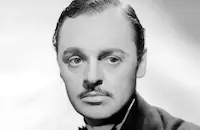Frankie and Johnny

Brief Synopsis
Cast & Crew
Frederick De Cordova
Elvis Presley
Donna Douglas
Nancy Kovack
Sue Ane Langdon
Anthony Eisley
Film Details
Technical Specs

Synopsis
Frankie and Johnny, singers on Clint Braden's riverboat, are in love, but Frankie refuses to marry Johnny until he stops gambling and losing all his earnings. A gypsy fortune-teller predicts that a redheaded woman will appear and can reverse Johnny's fortune. Soon after, redheaded Nellie Bly, Clint's former girl friend, comes aboard the riverboat, and Johnny begins to win. Meanwhile, Cully, Johnny's piano-playing sidekick, writes a song, "Frankie and Johnny," that is introduced on the showboat. A music publisher hears the song, likes it, and invites Frankie and Johnny to come to New York City to perform. Hopeful that Nellie's presence will bring him luck, Johnny tries to win enough money to take him and Frankie to New York. Frankie becomes jealous of Nellie, who is only interested in marrying Clint, and breaks off with Johnny; at the same time, Clint admonishes Johnny, telling him to stay away from Nellie. At the Mardi Gras ball in New Orleans, Nellie and Frankie dress exactly alike, and Johnny, thinking he is with Nellie, gambles and wins. When Frankie unmasks, Johnny realizes that she brings him as much luck as Nellie. Clint's dim-witted bodyguard, thinking that he is looking out for his employer's interests, places real bullets in the gun Frankie uses to "shoot" Johnny in the musical number. Luckily, the bullet lodges in a charm Frankie had given Johnny, and he is unharmed. Frankie and Johnny decide to marry, as do Nellie and Clint.

Director

Frederick De Cordova
Cast

Elvis Presley

Donna Douglas
Nancy Kovack

Sue Ane Langdon
Anthony Eisley

Harry Morgan

Audrey Christie

Robert Strauss

Jerome Cowan
Wilda Taylor
Larri Thomas
Dee Jay Mattis
Judy Chapman
Crew
Earl Barton
Bernie Baum
Roy C. Bennett
James M. Black
Joy Byers
Bill Giant
Alex Gottlieb
Alex Gottlieb
Alex Gottlieb
Dan Greenway
David Hess
Morris Hoffman
Fred Karger
Fred Karger
Florence Kaye
Harold E. Knox
Jacques Marquette
Al Overton
Nat Perrin
Doc Pomus
Katherine E. Purvis
Mort Shuman
Walter Simonds
Edward Small
Edward Small
Joseph Small
Joan St. Oegger
Randy Starr
Sid Tepper
Gwen Wakeling
Sid Wayne
Frank Webster Jr.
Ben Weisman
Grant Whytock
Fred Wise

Film Details
Technical Specs

Articles
Frankie and Johnny - Frankie and Johnnie
First some background. The first published version of the "Frankie and Johnny" ballad - originally known as "He Done Me Wrong" - is generally attributed to Hughie Cannon in 1904. Since then, many others have recorded the song - Ted Lewis, Gene Autry, Mae West (in her 1933 film, She Done Him Wrong) Brook Benton, Sam Cooke, Johnny Cash and, of course, Elvis in 1965 - but, it was in 1936 when the first film version of Frankie and Johnny appeared. In it, Helen Morgan played a singer in a St. Louis casino named Frankie who forms a romantic triangle with gambler Johnny (Chester Morris) and rival Nellie Bly (Lilyan Tashman). In the 1966 remake, Elvis's Johnny is more than just an amorous cardsharp; he's got a singing act with Frankie and gets to perform such non-hit wonders as "Make Petunia's Tulips Mine, "What Every Woman Lives For," and "Please Don't Stop Lovin' Me." If you really want to know what killed Elvis, it wasn't the drugs or the overeating; it was movies like Frankie and Johnny.
The character of Nellie Bly, played by Nancy Kovack in this version, was actually based on a real person, a newspaper reporter for The Pittsburgh Dispatch who made front page headlines when she went around the world in seventy-two days, six hours, eleven minutes and fourteen seconds, beating Phileas Fogg's record in the Jules Verne adventure, Around the World in 80 Days.
Not one of Elvis's more popular films, Frankie and Johnny is probably more significant as a turning point in the singer's life than anything else. According to biographer Peter Guralnick (in Careless Love: The Unmaking of Elvis Presley), during the making of Frankie and Johnny, "Elvis was visibly overweight; and perhaps the most notable aspect of the filming was the spiritual connection that he made with his co-star Donna Douglas. Instead of dating her, according to Sonny West, he took a genuine intellectual interest in her. They exchanged books and ideas, spoke of Daya Mata and the Self-Realization Fellowship to which she, too, belonged, and meditated together. He showed her many of his books, Larry [Geller] noted proudly, "and they would go over his marked passages together." It certainly wasn't the image most people had of the off-screen Elvis or Douglas who was starring as Ellie Mae in the then-current TV sitcom, The Beverly Hillbillies.
Producer: Alex Gottlieb, Edward Small
Director: Frederick De Cordova
Screenplay: Nat Perrin (story), Alex Gottlieb
Cinematography: Jacques R. Marquette
Film Editing: Grant Whytock
Art Direction: Walter M. Simonds
Music: Fred Karger
Cast: Elvis Presley (Johnny), Donna Douglas (Frankie), Harry Morgan (Cully), Sue Ane Langdon (Mitzi), Nancy Kovack (Nellie Bly), Audrey Christie (Peg).
C-88m. Letterboxed.
by Jeff Stafford

Frankie and Johnny - Frankie and Johnnie
Quotes
Trivia
Notes
Previously filmed in 1936. Some sources credit the dancers as the Earl Barton Dancers.

Miscellaneous Notes
Released in United States on Video December 6, 1988
Released in United States Spring April 1966
Released in United States Spring April 1966
Released in United States on Video December 6, 1988














